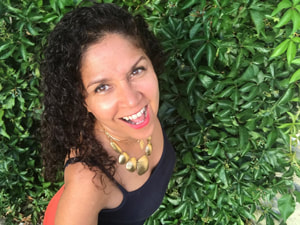|
I know, I know. You've heard it all already. Climate change is happening. And it's happening now. But the issue is so important that it begs the question, can there ever be TMI about climate change (too much information)?
We were one of 5 scientists interviewed by Bustle about climate change. I talked about the worsening of air pollution and its effects of human health. Here is what I said: " Dr. Luz Claudio, a professor of environmental medicine and public health at the Icahn School of Medicine tells Bustle, "The environmental challenge that I am focusing on in my research is to try to identify, prevent, and reduce the effects of environmental pollutants in vulnerable human populations, especially children. I do this work because children are particularly vulnerable to exposure to pollutants in the environment. Children tend to have higher exposures per body weight because they absorb chemicals more readily, they breathe more air, they are closer to the floor where there are often more of some classes of pollutants and they tend to put everything in their mouth, especially when they are really young. Also, exposure to a chemical pollutant early in life, even before birth, could have effects later in the life of children that can be unmasked as they grow. "My team and I have investigated the asthma epidemic in children, especially children in minority and poor communities. We have also assessed how different other environmental factors can interact with poverty, diet, minority status, poor housing and other factors to cause disease More recently, we have also investigated the role of air pollution in causing neurobehavioral effects on children." Human activity, she says, is culpable for these health issues, but we can do a lot to help. "Most of the types of air pollutants that we are investigating for their effects on children’s health are released through human activity." Air pollution can come from everything from domestic activities like cooking and heating to exposure to factory smoke, waste-burning, dust storms, and traffic emissions. "Collectively, we can as a society value the health of children by reducing emissions from traffic and other fossil fuels. For example, we are now in the process of estimating how small actions such as done by many people may quantifiably reduce the burden of disease in children. "On an individual level, people have more control about their indoor air," Dr. Claudio tells Bustle. "Being aware of the role that indoor air can play on children’s health is a great step towards addressing this issue. Never smoking in the home, removing sources of VOCs [Volatile Organic Compounds] such as certain carpeting, reducing or aerating items that produce a lot of off-gassing, and wall treatments that contain volatile compounds can be small actions that significantly reduce some of the indoor air pollutants."
1 Comment
5/28/2019 08:08:20 am
Excelent. What do I need more o talk in SP next monday.... GBless ya´
Reply
Your comment will be posted after it is approved.
Leave a Reply. |
This section will not be visible in live published website. Below are your current settings: Current Number Of Columns are = 1 Expand Posts Area = 1 Gap/Space Between Posts = 8px Blog Post Style = card Use of custom card colors instead of default colors = 1 Blog Post Card Background Color = current color Blog Post Card Shadow Color = current color Blog Post Card Border Color = current color Publish the website and visit your blog page to see the results AuthorDr. Luz Claudio is an environmental health scientist, mother and consultant, originally from Puerto Rico. She is a tenured professor of environmental medicine and public health. Luz recently published her first book: How to Write and Publish a Scientific Paper: The Step-by-Step Guide. Dr. Claudio has internship programs and resources for young scientists. Opinions expressed in this blog are solely her own and may not reflect her employer's views. Categories
All
|
|
Dr. Luz Claudio
[email protected] |
|
Opinions expressed in this website are solely Dr. Luz Claudio's own and may not reflect her employer's views. None of the information on this website should be taken as medical advice.
© COPYRIGHT 2018. ALL RIGHTS RESERVED.



 RSS Feed
RSS Feed